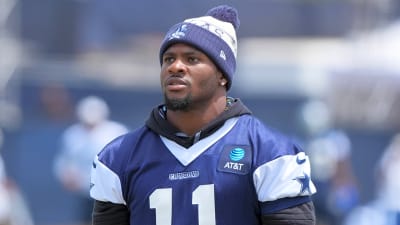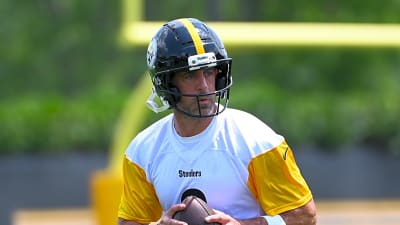
In 1993, the Ottawa Senators were a young franchise looking for a savior. They believed they’d found one in Alexandre Daigle, selecting him first overall in a draft loaded with future stars. What followed wasn’t just a bad prediction — it was a moment that would quietly, but profoundly, shape the NHL for the next two decades.
Shortly after being selected, Daigle shared, “I’m glad I got drafted first, because no one remembers number two.” Daigle said it to reporters either during a press scrum or an interview following his selection as the first overall pick by the Senators at the 1993 NHL Entry Draft in Quebec City. (We cannot find the exact source of the quote.) What we do know is that it was delivered in a light, somewhat flippant tone that matched Daigle’s then-playful, confident public image (from “The NHL draft as we know it will drift into history with next year’s change,” Lance Hornby, Toronto Sun, 6/26/24).
At the time, the comment didn’t generate much backlash — it only gained notoriety in hindsight, once Chris Pronger (the No. 2 pick) had far surpassed him in NHL success. With that one sentence, Daigle unknowingly lit a fire under the man taken second. And in doing so, he might have altered the trajectory of at least five NHL teams.
More Than Just a Quote — A Fork in the Road for Franchises
Daigle’s comment is infamous because it aged so poorly. But what makes it unforgettable is how it became fuel for a future Hall-of-Famer — a defenseman who built his career on proving people wrong, and in the process, became the kind of player successful franchises are built around.
This isn’t just a fun draft-day anecdote. It’s hockey history with consequences — the kind that shapes rosters, rivalries, and reputations.
Pronger’s Career: A Blueprint for How One Player Changes Everything
Hartford Whalers
The Hartford Whalers drafted Pronger but gave up on him too early, trading him to the St. Louis Blues for Brendan Shanahan. It was a short-term move that didn’t pay off. Within two years, the franchise had relocated and become the Carolina Hurricanes. Imagine that team anchored long-term by a mature Pronger — the story might’ve ended very differently.
St. Louis Blues
With St. Louis, Pronger became a true franchise defenseman. In 2000, he won both the Hart Trophy and the Norris Trophy — a rare feat for a blueliner. His presence defined the Blues’ approach to team-building for years, prioritizing mobile, punishing defensemen who could dictate play.
Edmonton Oilers
In 2005, the Edmonton Oilers made a bold move to acquire Pronger. The result? A stunning run to the 2006 Stanley Cup Final. In just one season, one elite defenseman helped turn a middling roster into a contender. When he requested a trade after that season, it sent shockwaves through the franchise — and the Oilers have been trying to recover ever since. Edmonton complied and moved him to the Anaheim Ducks.
Anaheim Ducks
Pronger’s next chapter came with Anaheim. Alongside Scott and Rob Niedermayer, Ryan Getzlaf, and (a then-young) Corey Perry, he helped form one of the NHL’s most feared defensive teams. The payoff came quickly — a 2007 Stanley Cup championship, the franchise’s first and only. That run cemented the Ducks as legitimate contenders for years to follow.
Philadelphia Flyers
In 2009, the Philadelphia Flyers acquired Pronger to stabilize their defense. He responded by anchoring their blue line during a run to the 2010 Stanley Cup Final, playing nearly half the game each night. His leadership helped define a Flyers era known for its grit and ‘hang-in-there’ spirit.
Why Pronger’s Story Matters to Fans, Franchises, and Futures
For fans, hockey history stories like this add context. They are not just about numbers on stat lines or Stanley Cup wins. Instead, they are about moments that spark movements. One quote at a draft podium, as ill-fated as it turned out to be for the speaker, became a catalyst that caused decades of ripple effects.

For NHL teams, it’s a lasting reminder that (1) every pick matters, (2) every trade matters, and (3) every chip on a player’s shoulder can turn into a championship edge. For young players? It’s a cautionary tale in humility. Daigle had the tools. Pronger had the mindset. Talent may open the door, but hunger walks through it.
Final Word: Hockey Is Built on Moments Like This
The phrase “Nobody remembers number two” wasn’t just incorrect, it was historic. Because everyone remembers what Pronger became: a legend, a game-changer, and a defining force for every team he touched.
And for fans, that’s the beauty of the game. It’s not just about who gets drafted first. It’s about who rises. Who responds. And who rewrites the story.
[Note: I’d like to thank Brent Bradford (PhD) for his help co-authoring this post. His profile can be found at www.linkedin.com/in/brent-bradford-phd-3a10022a9]
More must-reads:
- NHL coaches who have the best chance of success with their new teams
- Surprising update emerges about Jayson Tatum's recovery
- The '250-strikeout MLB seasons' quiz
Breaking News
Trending News
Customize Your Newsletter
 +
+
Get the latest news and rumors, customized to your favorite sports and teams. Emailed daily. Always free!








